Jake Needham is an American novelist and screenwriter known for his crime and espionage novels set in Asia, where he has lived for over 35 years. His work is recognized for its authentic Asian settings, earning him comparisons to Michael Connelly and the nickname "Michael Connelly with steamed rice" from the Bangkok Post.
Hello everyone, and welcome to an extra-special "1 on 1 with Me!" In this series, I highlight a new author and engage in a thoughtful conversation about who they are, what they care about, and their perspectives on various topics. I start with standard questions and then move into tailored follow-ups based on their responses.
I find the format to be conversational, and I truly enjoy it. My primary focus is to highlight the author I am interviewing.
Who am I? I am an author known for creating crime fiction, with a particular focus on complex characters, engaging dialogue, and narratives centered around crime themes. I genuinely enjoy listening to people and letting them share their stories.
If you are interested in being a guest, please reach out to me on social media or email me with the subject line: "Author Interview." This initiative is my way of giving back to the writing community. The guests you’ll hear from in these interviews come from diverse backgrounds, and they may or may not be familiar voices in the writing community. That’s the beauty of this platform on Substack—it's free!
My values
—Everyone matters.
—Be positive.
—Gratitude in everything.
—Default action is compassion.
—Empathy. Always.
HELP ME HELP THESE AWESOME PEOPLE!
Share these interviews on social media. That’s the best way for others to find this series and enjoy the words of wisdom these people will bring to your life.
Subscribe to my Substack or follow me on social media such as BlueSky, Threads, X (Twitter), and Instagram.
Share links. Share posts. Share thoughts.
Remember to always choose positivity over negativity.
Check out my books and drop a review. Like RedBull, reviews give author’s wings.
On to the interview!
Jake Needham is an American novelist and screenwriter known for his crime and espionage novels set in Asia, where he has lived for over 35 years. Born in Texas, now lives in Bangkok.
Screenwriter, producer, lawyer, and author, he has published 15 novels, including the bestselling The Big Mango, and two acclaimed series: the Inspector Samuel Tay Novels (one of my absolute favorites) and the Jack Shepherd Novels.He has received notable recognition, including the Barry Award for Best Paperback Original Novel in 2024 for Who the Hell is Harry Black?. Critics praise his atmospheric storytelling, with outlets like the Singapore Straits Times, labeling him "Asia’s most stylish and atmospheric writer of crime fiction." Needham continues to split his time between Thailand and the U.S., using his extensive experience in Asia to create engaging narratives.
I count him as one of my writing friends and I am a super fan of his Samuel Tay series I’m so happy he sat down for this interview.
No one is out there doing it on their own as well or even remotely like Jake Needham
Who are you and can you tell me a little about your work? What drives you? What do you hope to accomplish?
My name is Jake Needham. I write mysteries and thrillers set primarily against the background of Asian cities, places like Hong Kong, Singapore, and Bangkok.
I've been publishing novels for over twenty-five years now. I've published traditionally, and I've self-published. These days I have fifteen novels in print with Kindle Direct Publishing. My Inspector Samuel Tay series has eight books in it now, with a ninth coming later this year. My Jack Shepherd series runs for six books. I also have one standalone novel.
My wife and I live in Bangkok and have for over thirty years. Before that, I lived in both Hong Kong and Sydney. I write mysteries and thrillers about places I know and have something to say about because I think that infuses my books with a feeling of life and a sense of credibility they wouldn't otherwise have.
I suppose I could write a private eye series set in Dallas, but why would I want to? I've lived most of my adult life in the most exciting and exotic places in the world. I know politicians and spies and ambassadors and criminals and cops in every one of those places, and I've seen life here in a way not many Americans have had the opportunity to see it.
That's what I draw on to make the fiction I write feel real. That's how I've been doing for twenty-five years, and it's how I intend to keep right on doing it.
What drives me? I honestly don't think of myself as a particularly driven writer. I've been doing it for a long time, and I'm pretty good at it. A fair number of people seem to like what I do, so as long as they keep on liking it, I'll keep on doing it. Simple as that.
How do you see your relationship with the reader?
Social media and the Internet have altered the relationship between novelists and readers in a fundamental way. Not that very many years ago, you went into a bookstore and picked out a novel that you wanted to read, but I doubt it ever occurred to you to contact the writer or try to establish any kind of personal relationship with him.
Now that happens all the time. We're all just a few keystrokes away from our readers, and there are a fair number of people who really do like to have at least passing personal acquaintanceships with their favorite writers. There's hardly a day anymore on which I don't get at least a couple of messages or emails from readers about something.
Now don't get me wrong here. I'm happy to hear from readers. These days, it's a fundamental part of marketing for writers to encourage readers to reach out to us if they're inclined. Most writers' websites have some kind of messaging or email function, and we usually include something in the back matter of our books to encourage people to use those functions. On top of that, there are all the social media channels that readers use to keep up with their favorite writers, and readers expect to find us there when they look. If it weren't for that, I don't think I would use Twitter or Facebook nearly as much as I do now, but if I don't show up regularly, I start getting messages asking if I've died.
Since all of my books are set in Asian cities and I live in Bangkok, I frequently hear from readers who are visiting here. They ask me to meet them for lunch or for coffee, and I'm happy to do that whenever I can. I probably average about one meet-and-greet with a reader every week now. To be honest, doing fifty meet-and-greets a year takes a big chunk out of my writing time, but I'm honored that people have become sufficiently attached to my books that they want to say hello when they're here, so I always try to work them in. I have people on my mailing list who have been reading my books for over twenty years. Loyalty like that from readers makes you humble when people come knocking.
How do you view your characters? What has changed over time, and what has stayed the same? How do you develop complex characters?
I really can't think of a particularly interesting answer to give you here. I honestly don't think about my characters very much at all. They're just there.
I suppose I'm pretty much an instinctive writer, an entirely seat-of-the-pants kind of guy, and I can't remember a single moment I've ever spent sitting around reflecting on how to develop my characters.
They do stuff, and I write down what they do. They talk, and I write down what they say.
Like I said, they're just there.
What is your version of success? Has it changed during your writing journey? How so? What’s different now versus when you started?
I've certainly never looked at writing remotely like the journey metaphor that so many people like to use for it. It's just something I do.
I was making a decent living writing screenplays for crap cable television movies when I published my first novel. Screenplays aren't real writing. They're more like a parlor trick. And I guess I just wanted to see if I could do something that had a little more substance to it.
That first book wasn't something I was terribly invested in. A small publisher in Asia took it and put it out there and, the next thing I knew, they had sold more than 200,000 copies, mostly in non-English-speaking countries. My gosh, I thought, then maybe I ought to take this novel writing stuff more seriously.
That was over twenty-five years ago now, and I've been trying to take it seriously ever since.
What type of reader are you? How do you view books you read, and how do they affect you and your writing?
I'm a pretty voracious reader. I read a hundred to a hundred and fifty books a year, the majority in the same mystery-thriller genre that I write in. You've heard the cliché, I'm sure: "Reading is breathing in, and writing is breathing out."
Yeah, it's exactly like that.
How do you find readers? What works and hasn’t worked for you? What resonates with you when readers share thoughts about your work? And where do you see yourself in the writing community and publishing world?
I'm not really part of what most people are referring to when they talk about the writing community. I write, I publish, I respond to my readers who reach out. That's it.
Living here in Bangkok, I'm nearly ten thousand miles and a good twenty-four hours of travel from most places in the U.S., which makes it difficult and expensive to attend any of the many writers' gatherings and conferences that take place around the country every year, even if I wanted to attend some of them which I'm honestly not that keen on. I honestly don't even know that many other writers, but most of the ones I do know show up at a fair number of those gatherings every year to make sure they keep their place in the writers' community secure.
Writers network and make friends at these gatherings, and that matters a lot. There is a certain 'club' factor at work in the profession. Not doing any networking myself, and not being part of the club, is a substantial limitation for me since I don't have many friends in the book business to speak up for me.
For example, I've always had difficulty getting attention from the major review sites and book bloggers because they just don't know me. Last year, when the seventh novel in my Inspector Samuel Tay series won the Barry Award as 'Best Paperback Original Mystery of 2024,' I thought that might change things.
It didn't. The eighth novel in the Inspector Tay series was reviewed no more widely than the first seven had been. I wrote to most of the major review sites and book bloggers, and I shamelessly pushed the Barry Award out there to persuade them to give my new title a look, but not one even bothered to reply, let alone ask to review the book. Even after winning a major award for the last Inspector Tay, I couldn't get a single one of the major online sites that the industry relies on to publicize new titles to review the new Inspector Tay.
Now that I read back over that, it sounds a little whiny, and I certainly didn't mean it that way. I only intended to say that I'm pretty much on my own out here at the edge of the world. I'm certainly not unhappy about that, but it is a significant limitation on my ability to take part in the book business and therefore to reach readers.
I do what I do, and I do it as well as I can, but that's the only thing I can control when it comes to reaching readers.
—Please provide a brief blurb about yourself, and feel free to promote your recent book or work.
The ninth book in my Inspector Samuel Tay series will be published later this year. It's called GOODBYE, MR. BOOGIE.
Buy a copy when it comes out. Heck, buy two.
Where the heck did Samuel Tay come from and how do you develop the stories he will appear in? Specifically, how’d you come up with Harry Black and the latest (post employment) Samuel stories?
The germ of an idea for my first Samuel Tay book, THE AMBASSADOR'S WIFE, came from the upheaval about twenty years ago over the wife of an American ambassador being outed as a deep cover CIA case officer by the Washington Post. Remember the Valerie Plame affair? 'Plamegate,' the media naturally dubbed it. I thought the idea of the wife of an ambassador being a deep cover agent for the CIA was an interesting idea for a novel, and the book just took off from there.
By coincidence, I was in Singapore at the time the idea occurred to me, so placing the narrative there in Singapore came together without a lot of thought on my part. I knew I'd need a Singaporean cop as the central character, so I picked up the telephone directory in my hotel room – you remember telephone directories, don't you? – and I paged through it looking for a good local name to use. It didn't take me more than a few minutes to come across Samuel Tay, and I immediately thought, 'Yes, that sounds like the name of my cop.' So, voila, Inspector Samuel Tay was born.
The only honest answer I can give you to where the rest of the Samuel Tay stories came from is that I haven't a clue. Or maybe I've just forgotten. All of my novels have kicked off a little like THE AMBASSADOR'S WIFE did. Some event or incident I read about strikes a spark and the book builds from there.
But there have been a lot of books, and the precise sources of each of those sparks has faded from memory.
How and why did you get into writing screenplays? Can you tease a plot of one of the more successful TV movies? And, in particular because I loved the analogy, can you explain a little more on what makes those screenplays “a parlor trick?”
I became a screenwriter entirely by accident. Honest. I really did.
I had practiced law for twenty years, and I was mostly involved in guiding international corporate acquisitions. In the late 1980s, I was leading a takeover of a diversified American corporation for an Australian investor. One piece in the deal was a very modest little Hollywood production house the American company owned that was in the business of making cable TV movies. The Australian investor didn't want it, which was hanging up the rest of the deal. So, to get the transaction closed, I ended up buying the production house out of the deal myself, but please understand it really was a very small potatoes operation.
Anyway, I was stuck with this little company then, so I tried to make something out of it. I attempted to focus it more tightly on what I thought it could do best, hoping it might actually turn into something significant someday. I dashed off an outline of the sort of movies I wanted the company to pitch to its buyers as an in-house guide to the kind of projects I thought we should be looking at, and a copy of that outline accidentally got sent to a contact our development guy had at one of the cable TV networks. Several weeks later, the network called me up and asked us to make it for them.
'Make what?' I asked.
'The movie you wrote that treatment for,' they said.
'I never wrote a treatment for a movie,' I told them. 'That was just a business plan.'
'That’s okay,' they said. 'We want to make it anyway.'
And that, boys and girls, was how I became a screenwriter.
What I meant by saying that screenplays are a parlor trick is that they're not real writing. They're not even real stories. They're just outlines of narratives that might become stories if they're handled right.
Movies are made by committees. All sorts of people have a piece of them. You write screenplays knowing that everything in them will be changed by someone. Maybe by producers or studios, probably by other writers, certainly by the director, and without any question by the actors.
There are no vivid settings in screenplays, no richness in the characterizations, no real depth to the narrative. A screenplay is only an outline, a very rough outline at that, and later it's up to other people to fill in all the good stuff, the stuff that most writers think gives their work meaning.
How does your family view your writing? Do you write full time now? What drew you to the East / present location (not so much how you got there, but what’s kept you there)?
I do write full time, although it would probably be more accurate to say I spend full time on the book business.
Ever since I terminated my traditional publishing deals almost twenty years ago and started putting my stuff out myself through Amazon, I've watched the required administrative and marketing work grow exponentially. These days, I'd say that I spend significantly less than half my working time actually writing, and significantly more than half my working time dealing with the administrative and marketing work needed to keep the business running.
And as for my family, my wife reads all my books, naturally, and she is nice enough to say she enjoys them a lot. She's not an early reader of my manuscripts, but only a reader of the finished books. I won't let her see them until they are fully edited and ready to be published.
The rest of my family isn't really interested in what I do. We have two adult sons who are married and living in the US with their own families. If any of them have ever read any of my books, they haven't mentioned it to me. I don't think anyone in my wife's family here in Bangkok has ever read any of my books either.
That bothers me far less than you might imagine. Not at all, really. People are interested in what they're interested in. If most of the people in my family aren't interested in reading novels, even mine, that's just the way it is. They're probably interested in a lot of things I'm not interested in either.
So what was the other part of that question? What's kept me living in Bangkok, you ask? Everybody's got to live somewhere, I guess, so we live here.
My wife was born here in Thailand, although she grew up in the UK and graduated from Oxford. We met when she was doing a stint in Bangkok as the editor of the Thai edition of a well-known British magazine, and I was in Thailand pretending to produce a movie for HBO that they were pretending to base on a script I had written. She came out to the film set one day while we were shooting to interview me, and we were married about a year later.
That was over thirty-two years ago now, and we've maintained residences in both Thailand and the US and split our time between the two countries more or less equally for most of those thirty-two years.
Back when the virus panic hit and international travel became very difficult, however, we didn't return to the US for over two years, and we realized then how much effort and money we were putting into trying to live in two places at the same time. We also realized how little benefit we were getting from it. So we sold our apartment in the US, and I've only been back once since then.
What is your favorite thing about what you are doing? You mentioned people seem to like it and meeting fans every so often, but if there wasn’t a personal reward, beyond money, most people don’t continue to do what they do without a fulfilled passion?
Writing and publishing mysteries and thrillers has become my job. I like my job, but it's still a job. I show up at the office every morning and do it because... well, it's my job to show up and do it. I get a lot of mail and other messages from nice people who want nothing from me but to read the next book. I feel a real responsibility to repay that loyalty by delivering for them.
I have always been deeply skeptical of writers who speak in terms of inspiration and passion. If either of those is what actually drives someone to write a novel, it would be a fleeting thing, not the basis of a lifelong career.
I'm about to publish my sixteenth novel. Inspiration and passion won't sustain you through sixteen books. To do that, you need discipline and a businesslike approach to your work. Maybe it's because I came to writing from a legal background, but I have no difficulty at all looking at writing as a business. Doing that is how you keep going.
Publishing a book or two is one thing. Making a career as a novelist, even a modest career like mine, is the proverbial horse of another color altogether.
Right now, who are you reading, just finished, or plan to start next?
I just finished an ARC that Little Brown very kindly sent me of Michael Connelly's new novel to be published at the end of May, NIGHTSHADE.
It's a terrific book. Connelly has gone back to his roots with a new protagonist who echoes the early Harry Bosch. A dogged investigator, he's a middle-aged white male whose bosses don't much like him since he goes his own way too often. And he's a guy with a lot of personal baggage.
Connelly writes broken down middle-aged men better than anyone I know. I have the feeling that his recent forays into young female characters were purely the result of pressure from his publisher. Surely, he must realize he really wasn't very good with those characters. You can almost hear the conversation, can't you?
Mike, baby, forget Harry Bosch. You've got to get modern. People don't want to read about broken down old white men anymore. You've got to write about strong, assertive young women. That's what readers want! That's where it's at now!
Yeah, I'll bet went just like that.
Anyway, thank God, the old Connelly is back now. NIGHTSHADE is exactly the kind of book that made us love him twenty years ago. It's by far the best book he's published in a very long time.
Jake Needham is an American novelist and screenwriter known for his crime and espionage novels set in Asia, where he has lived for over 35 years. His work is recognized for its authentic Asian settings, earning him comparisons to Michael Connelly and the nickname "Michael Connelly with steamed rice" from the Bangkok Post.
Mark Atley is known for writing crime fiction, with his works often characterized by complex characters, engaging dialogue, and narratives that build tension towards explosive climaxes.
Atley's approach to writing often involves creating intricate plots where characters' histories and motives are deeply interwoven, providing readers with both entertainment and a commentary on crime and morality. His work has been featured on platforms like Audible for audiobooks, indicating a broad reach in the crime fiction genre.
Mark Atley also engages with his audience through social media, where he can be followed for updates on new releases and insights into his writing process


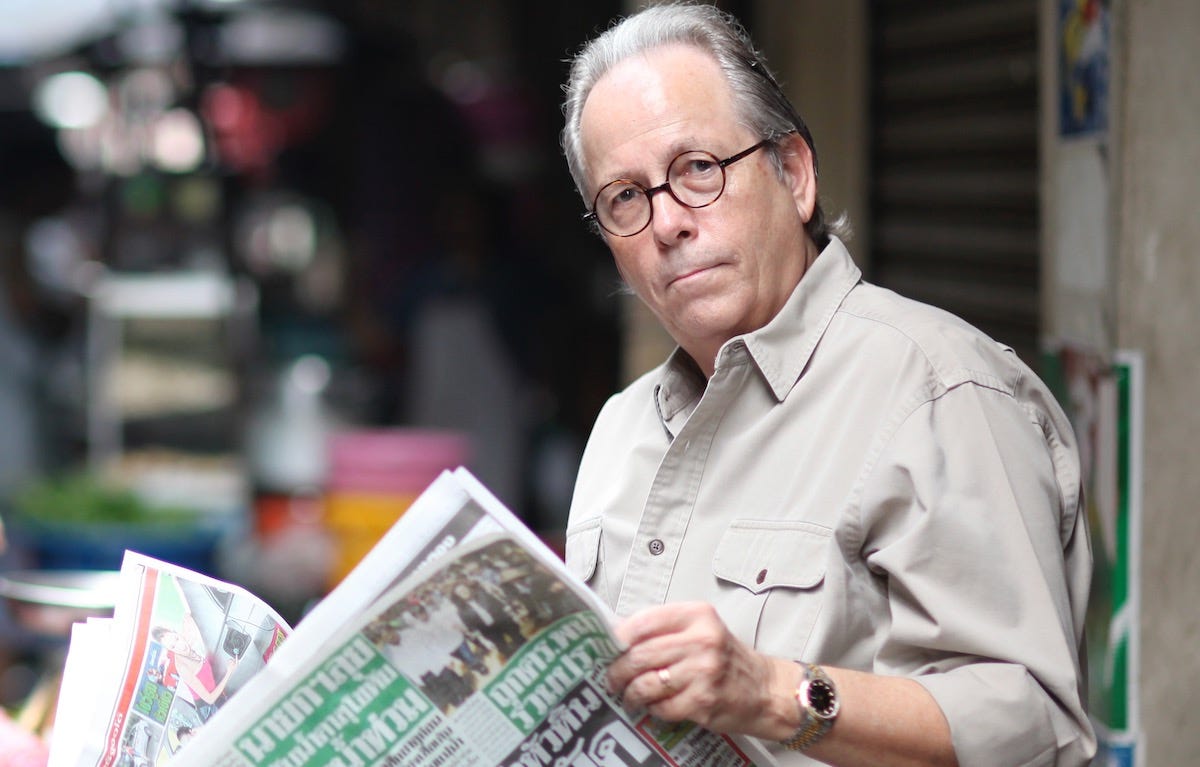
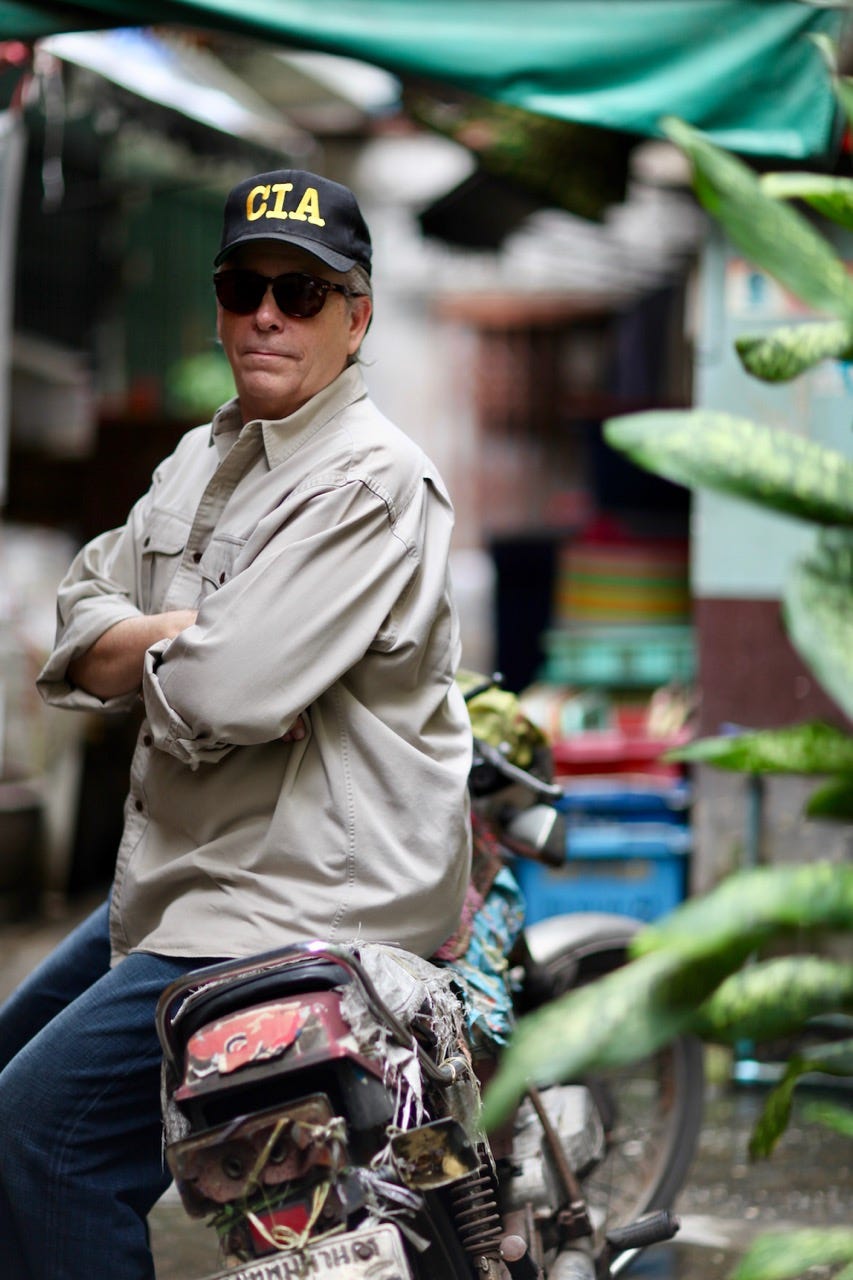

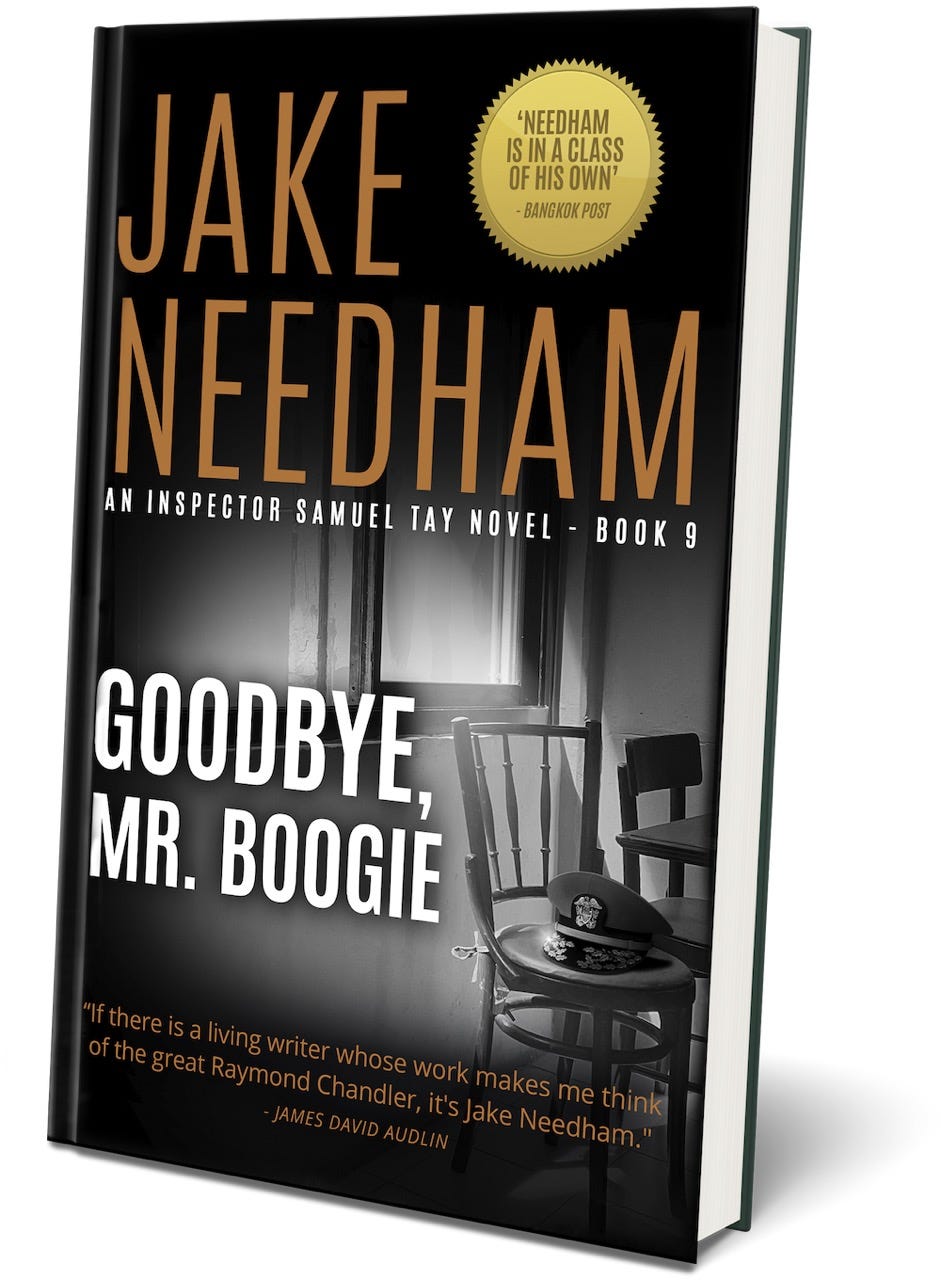

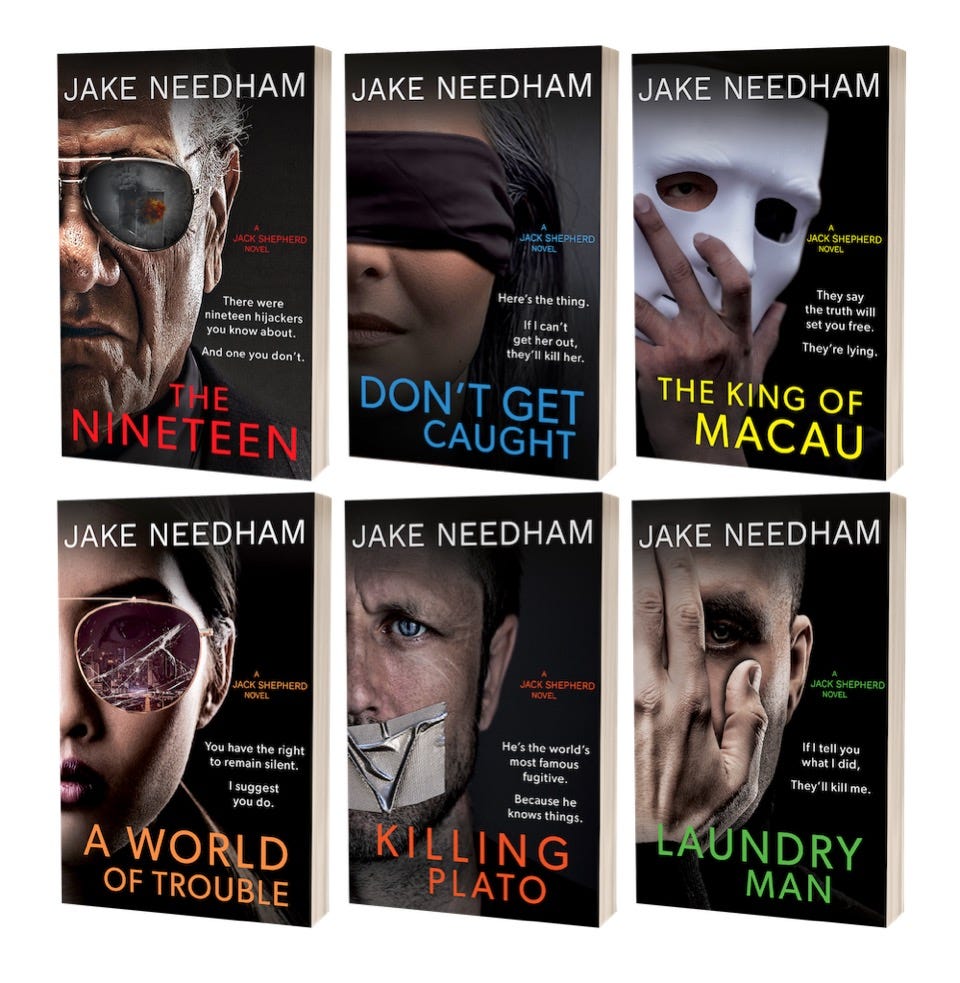
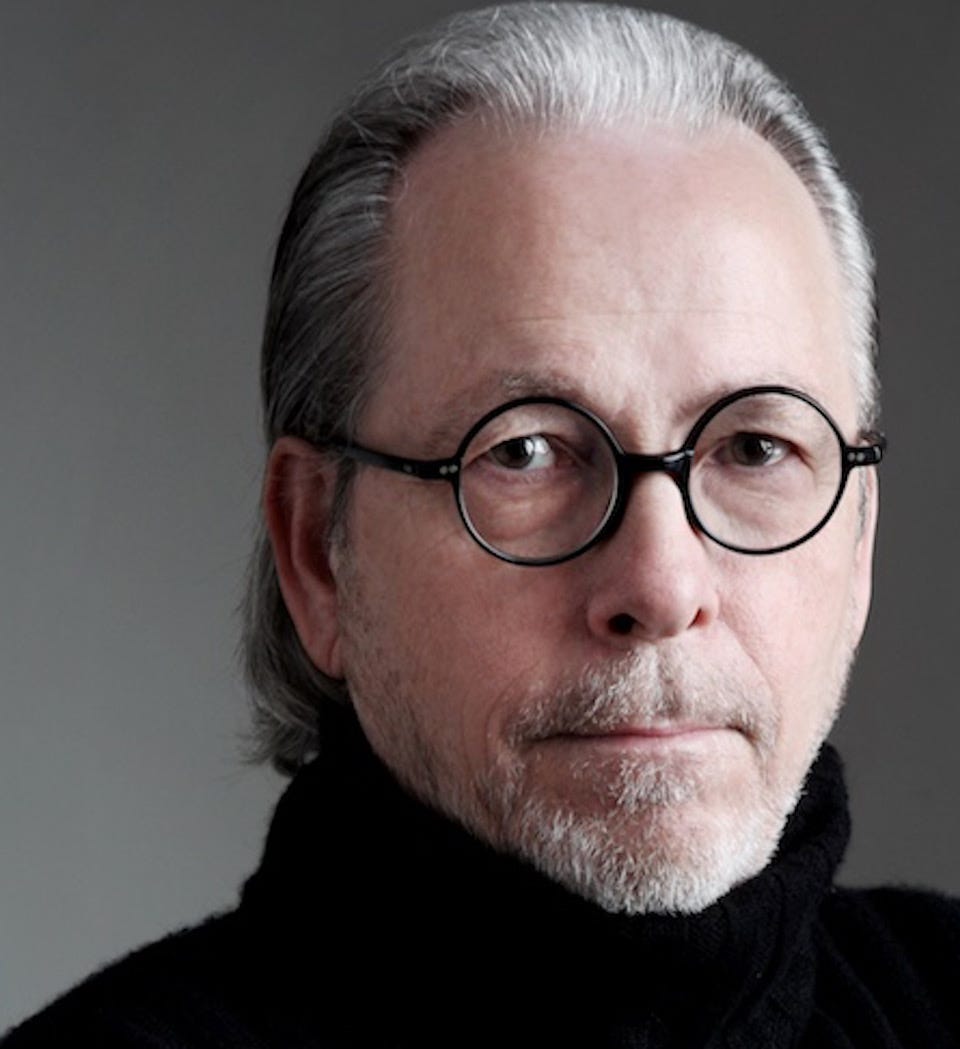
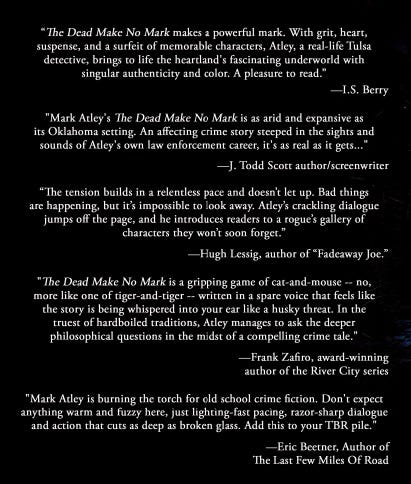
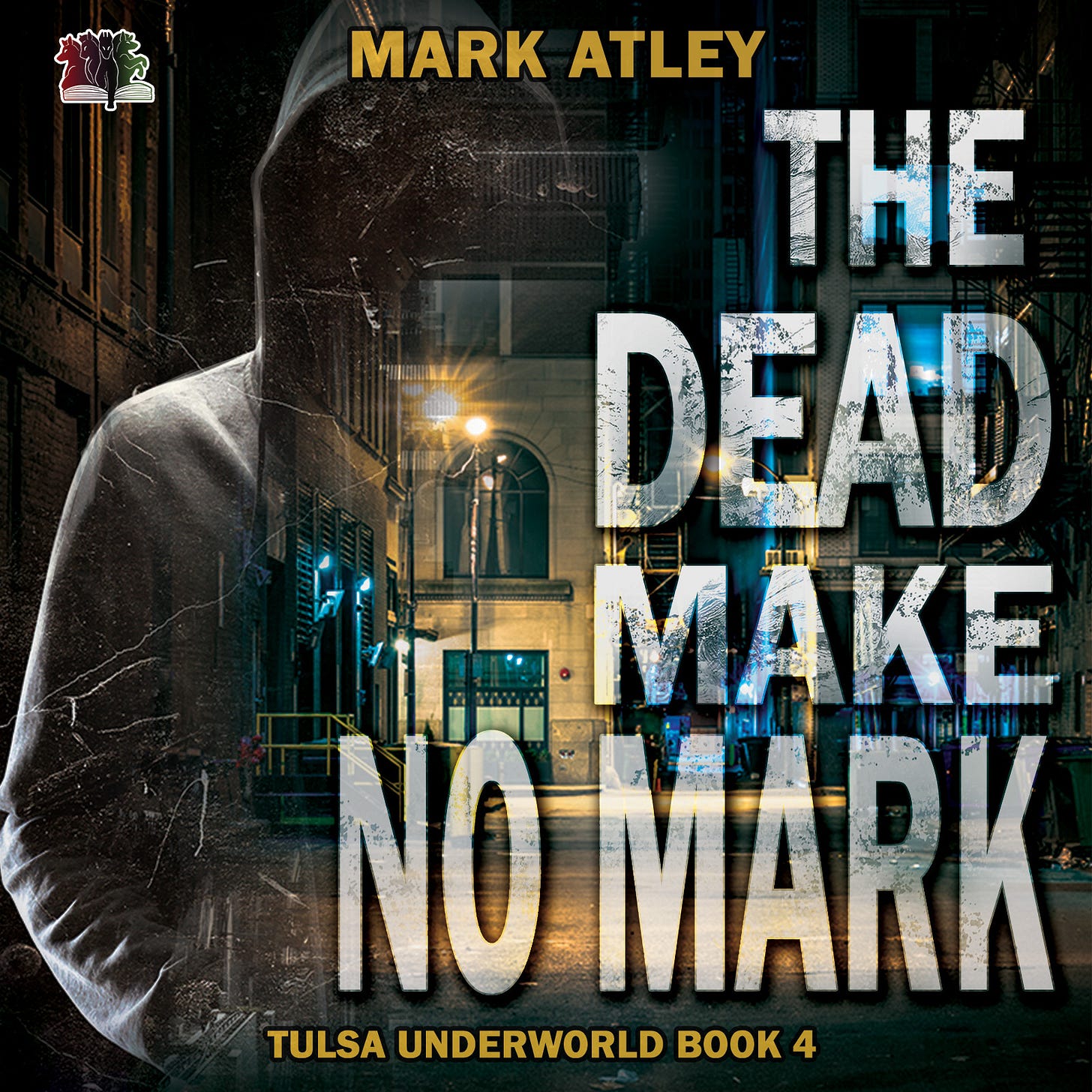
I'm a big fan of Sam Tay, and I LOVED The Big Mango. Terrific interview!
Excellent. Always amazes me that most authors family members don't read their books. In the long run probably a good thing. The Asian backdrop for these stories sounds intriguing. Mt TBR mound just groaned.